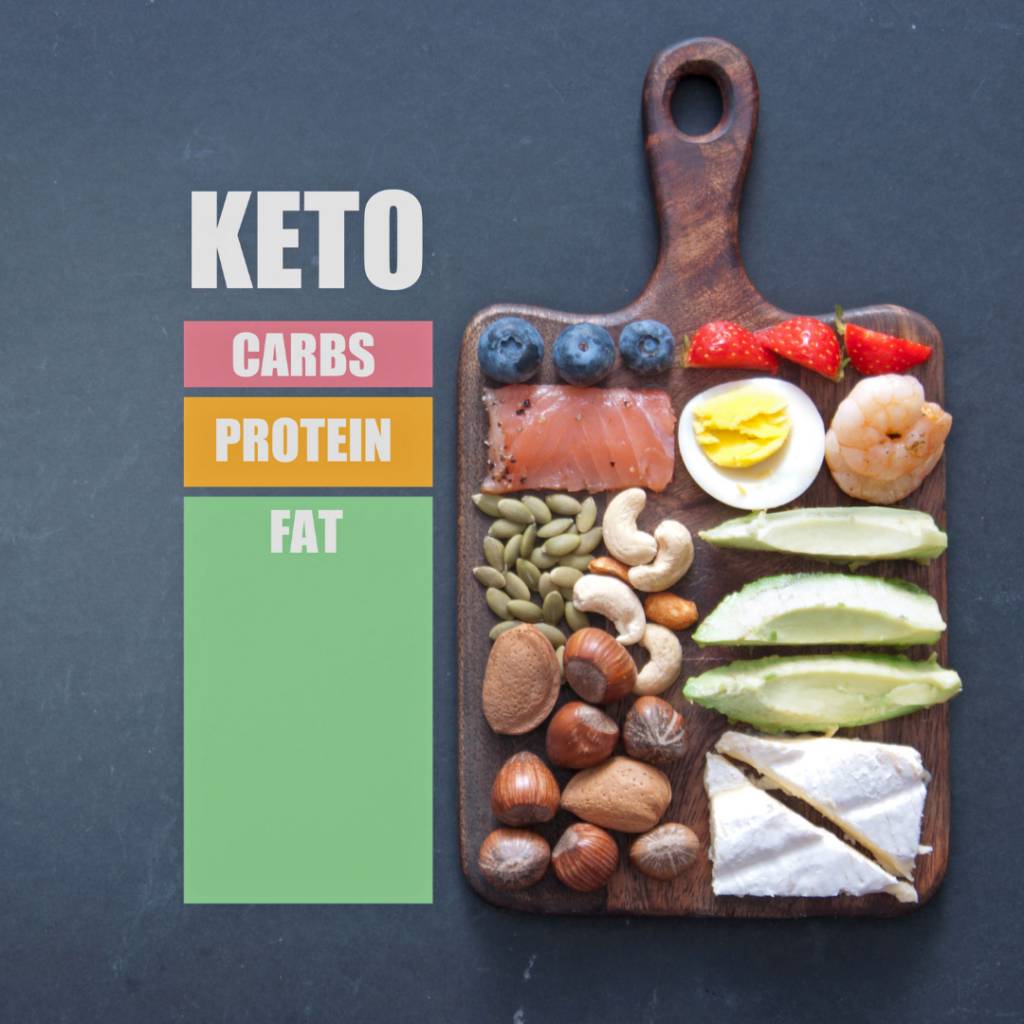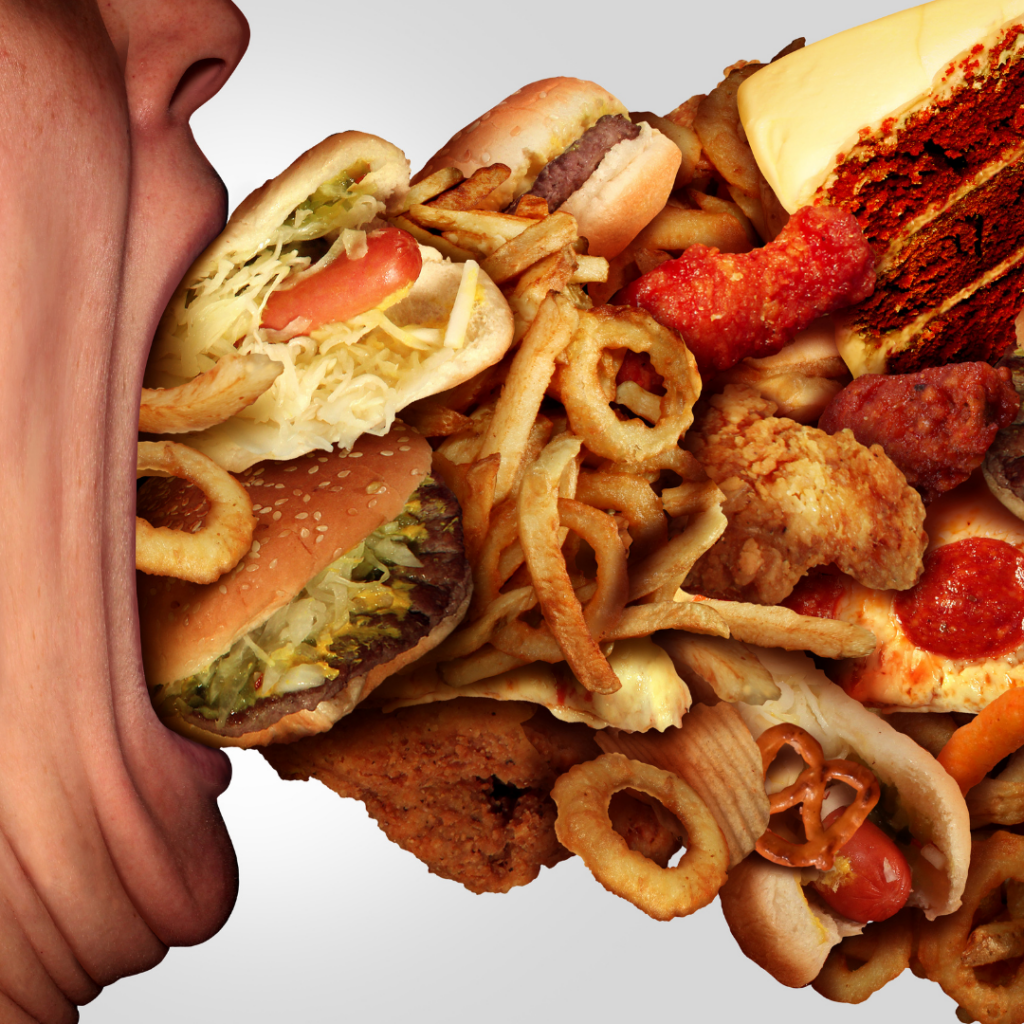The Keto Diet is the newest (but not actually new) craze for seeing those pounds melt off. Just weeks from flab to flat, right? Let’s talk about all of the ins and outs of this buzzword diet strategy, and figure out if the results are really worth the restrictions.
Table of Contents
ToggleWhat exactly is the Keto Diet and how does it work?

The Keto Diet works by putting the body into ketosis which is “a metabolic state in which fat provides most of the fuel for the body” (Healthline). Ketosis is often associated with low-carb diets, as well when the body is in a state of fasting or starvation.
Glucose, which is found in carbohydrates is the preferred energy source for many of our body’s cells, however when eating a very low carbohydrate diet the liver turns fatty acids (released from the body’s fat stores) into ketones which can be used as an energy source.
How low-carb is low enough?
Less than 50g of carbs per day, which equates to about 200 calories of your daily calorie budget. That’s about 2 slices of bread, or 1 cup of white rice for example. Say goodbye to fruits and many veggies, and most dairy too.
So where are the rest of your daily calories coming from? Let’s take a look at the macronutrients (i.e. carbs, protein, fats), that’s where the caloric value is derived for all of our foods and beverages. With carbohydrates out, that leaves protein and fats… About 20-25{885586236f5820200058e61f9e2fcec1023d525f8b1a6e4e5a4fd7f3c0d65acb} of your remaining calories will be coming from protein, which means the vast majority of your daily calories will be fulfilled by fats.

Sounds good right? Who doesn’t love high fat foods like chips, doughnuts, fries, peanut butter?
…but wait, all of those items are also fraught with carbohydrates.
Let’s take a second stab at some keto-friendly foods: butter, avocados, whole eggs, bacon, cheese(cheddar, Muenster, gouda, brie, etc.), pork rinds, beef and pork. Not too shabby!
You may even look at the list above and think it looks pretty darn tasty, but will that be the same thought in 2 weeks? A month? 3 months?
What are the costs (and not just financial) of eating keto?
With the growing buzz around following a keto diet lifestyle, finding keto-friendly foods isn’t nearly as difficult as it was a few years ago, but filling your grocery cart with keto-labelled foods is likely to increase your bill too. Especially if you’re not taking the time to plan your weekly menu and keeping your pantry stocked with keto snacks.
Specialty, even in your regular grocery store, costs more. But is the food any healthier? What are you truly paying for with all of these keto-approved foods? Additives to help you try to forget that the carbohydrates are missing. You’re also paying for the privilege of saying that you’re eating keto.
What are a few of the other costs of following a keto diet plan?
- Nutrient deficiency
- Increased risk of heart disease and diabetes
- Social isolation
- Disordered eating habits
- Rebound effect after stopping such a strict and restrictive diet
All or Nothing: the Pitfalls of a Restriction Diet
What happens if you follow all of the rules of a keto diet, removing almost all carbohydrates from your diet, and then one day you fall off plan (intentionally or unintentionally)? Your body immediately kicks you out of ketosis and you are back to square one. One of the main tenets of the ketogenic diet is based in ‘all or nothing’ which is detrimental to not only your mental and emotional well-being, but also your physical well-being. Our clients and athletes are coached to not hold themselves to perfection, or to an all-or-nothing strategy, because we are humans and expecting perfect performance is not a sustainable action plan.
How long can you sustain a highly-restrictive diet? What if you just can’t stand it anymore and decide to splurge and eat that fresh baked bread you’ve been missing? Then the wheels start to fall off, and you’re grabbing every available carb in sight… The weight that had been lost climbs right back on board, and you’re left deciding whether or not to take another stab at a keto diet (perpetuating the yo-yo effect of a ‘diet’ mentality).
Who does benefit from a ketogenic diet?
Studies have shown that persons with neurological conditions, such as Parkinson’s disease, epilepsy, and dementia have seen improvement to their symptoms and function through a keto diet.
Athletes will likely not see much improvement to their performance, and may even lose muscle mass. Since carbohydrates are the macronutrient that our bodies can easily (and quickly) use for energy, athletes looking to improve performance in their sport will likely notice their performance remain stagnant or decline while following a keto diet.
But what if there could be a better way to achieving your weight loss goals?
Building a healthy lifestyle that allows you to achieve your goals (scale weight, physique changes, health and fitness goals) all while enjoying and eating the food you love. Losing weight isn’t about finding the ultimate diet, like the Keto diet, or going Gluten-Free, but about managing your calorie intake vs. expenditure (calories in vs. calories out), strength training to build muscle mass (to get you ‘the look’), and making these small changes consistently over time.
We offer nutrition education and accountability coaching at Progressive Performance – if you are ready to take charge of your health and nutrition, achieve the goals, and finally get the body you want send us an email at [email protected] and a coach will be in contact with you to start your own transformation.



